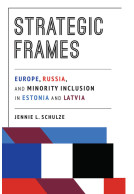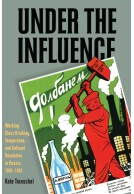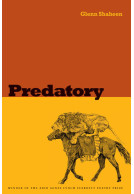Nature and National Identity After Communism (Paperback)
Globalizing the Ethnoscape
Imprint: University of Pittsburgh Press
Series: Russian and East European Studies
Pages: 360
ISBN: 9780822959427
Published: 10th November 2006
Script Academic & Professional
Series: Russian and East European Studies
Pages: 360
ISBN: 9780822959427
Published: 10th November 2006
Script Academic & Professional
You'll be £45.00 closer to your next £10.00 credit when you purchase Nature and National Identity After Communism. What's this?
+£4.99 UK Delivery or free UK delivery if order is over £40
(click here for international delivery rates)
Order within the next 3 hours, 55 minutes to get your order processed the next working day!
Need a currency converter? Check XE.com for live rates
(click here for international delivery rates)
Order within the next 3 hours, 55 minutes to get your order processed the next working day!
Need a currency converter? Check XE.com for live rates
In this groundbreaking book, Katrina Schwartz examines the intersection of environmental politics, globalization, and national identity in a small East European country: modern-day Latvia. Based on extensive ethnographic research and lively discourse analysis, it explores that country’s post-Soviet responses to European assistance and political pressure in nature management, biodiversity conservation, and rural development. These responses were shaped by hotly contested notions of national identity articulated as contrasting visions of the “ideal” rural landscape.The players in this story include Latvian farmers and other traditional rural dwellers, environmental advocates, and professionals with divided attitudes toward new European approaches to sustainable development. An entrenched set of forestry and land management practices, with roots in the Soviet and pre-Soviet eras, confront growing international pressures on a small country to conform to current (Western) notions of environmental responsibility—notions often perceived by Latvians to be at odds with local interests. While the case is that of Latvia, the dynamics Schwartz explores have wide applicability and speak powerfully to broader theoretical discussions about sustainable development, social constructions of nature, the sources of nationalism, and the impacts of globalization and regional integration on the traditional nation-state.
Other titles in the series...
Other titles in University of Pittsburgh Press...





















